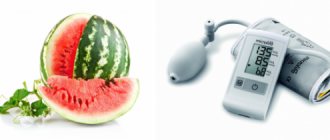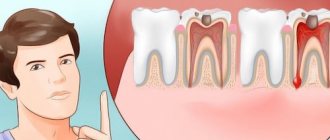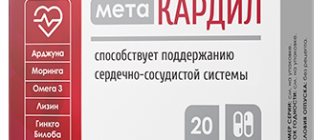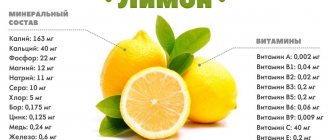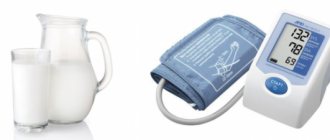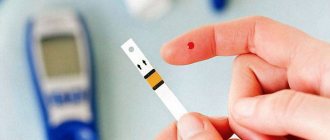Chamomile (from the Latin romana, "Roman") is a small, inconspicuous perennial flower with great potential. This unpretentious plant has taken all the most useful things from the sun and earth.
Many summer residents who have experienced how chamomile affects blood pressure grow it specifically, because it consists of:
- From ascorbic, nicotinic, salicylic acids, valuable for the body;
- Pectin, carotene;
- Tannins;
- Flavonoids and azulenes;
- Essential oils;
- Gum, wax;
- Macro- and microelements: calcium, potassium, copper, zinc, iron, magnesium, manganese.
Benefits of Chamomile Tea
Chamomile appeared in healers’ medicine cabinets quite a long time ago, which is why it is called nothing less than pharmaceutical. It includes:
- Apigenin. A substance that can suppress allergies, inflammation of various natures, fight free radicals, and inhibit some types of cancer cells. Of all the herbs used to make teas, chamomile contains the highest amount of apigenin.
- Chrysin, which has strong sedative properties. This substance can reduce anxiety, causeless fear, unconditional panic attacks, hysterical state, and relieve nightmares.
- Coumarin. The substance that gives chamomile its characteristic aroma. Known as an antiallergic agent that relieves swelling, especially associated with impaired lymph circulation, postoperative.
- Ascorbic acid. The most important substance for the normal functioning of connective and bone tissues. Promotes the conversion of cholesterol into bile acids, which stimulates digestion and prevents the formation of gallstones. Is a powerful antioxidant.
- Tannins, which give the plant a bitter taste, help improve the functioning of the gastrointestinal tract, normalize the microflora in the intestines, and get rid of microbes and rotting products. Effective for preventing deposits of heavy metal salts, which cause significant harm to the entire body.
- Pectin. Doctors call it the “orderly worker” of the human body due to its ability to cleanse it of harmful substances without disturbing the natural microflora. Removes radioactive elements, toxic substances and pesticides from the body.
- Carotene. Actively participates in metabolic processes, is important for the formation of bones, nails, teeth, fat deposits, stimulates the growth of new cells, slows down aging, fights viruses and bacteria.
- Essential oils with antimicrobial, antispasmodic and regenerating properties. Vitamins, macro- and microelements: potassium, calcium, zinc, copper, iron, magnesium, manganese.
Unlike black and green tea, chamomile tea does not contain caffeine at all.
Monks from Tibet appreciated all the benefits and harms of chamomile tea, its ability to restore cells and stimulate their regeneration. Therefore, this plant is an essential ingredient in the famous Tibetan elixir of youth.
Why we love chamomile tea
This plant has been used in folk medicine since ancient times. Tibetan monks actively consumed the elixir of youth, prepared from chamomile with the addition of other medicinal herbs. We prepared a mixture: chamomile, immortelle, birch buds, St. John's wort - 1 tsp each. All herbs must be ground and boiling water (0.5 l) added. Keep the infusion for 3 hours without access to light, then it can be sweetened with a spoon of honey. The benefits of such a drink are obvious, because it is thanks to chamomile that tea improves blood pressure and metabolic processes. Why is this drink so popular?
- There is no caffeine, chamomile and blood pressure are not a problem for hypertensive patients.
- It improves digestion - an important component of a therapeutic diet. Helps relieve stomach discomfort after overeating. During long holidays with rich feasts, it is indispensable for hypertensive patients.
- There is apigenin, a substance that prevents the development of cancer.
- Apiin saves from intestinal colic, gastritis, peptic ulcers, and diarrhea.
- There are components that have a local calming effect (relieve itching and redness on the skin).
- Contains flavonoids that reduce inflammation in the body and reduce temperature.
- Nicotinic acid supplies us with vitamin PP, which helps with diabetes and relieves vascular spasms.
- Chamomile heals the nervous system and makes it easier to get out of a stressful situation, which is important for high blood pressure.
- As a mild antispasmodic, it is recommended for headaches caused by changes in blood pressure and sudden changes in weather.
- It is useful for exacerbation of problems with the gastrointestinal tract and during critical days.
- The drink normalizes the microflora of the stomach and reduces the risk of erosion.
- Relieves migraines, reduces cholesterol and blood glucose.
- Serves as a good prevention of cardiovascular diseases and kidney failure.
- Rejuvenates: increases skin turgor, refreshes.
- Those who drink tea constantly do not have staphylococcal boils (seeds) on the lips.
It is also used today in traditional medicine. Thanks to the high concentration of vitamin C, which does not disappear during heat treatment, chamomile drink strengthens the defenses and prevents colds. If you are prone to ARVI, you should drink this tea regularly. During the off-season, it is recommended to drink this miracle tea almost every day, as it has a bactericidal effect and improves mood.
Nowadays chamomile extract is obtained artificially. It is included in a set of measures that alleviate allergies, asthma, burns, rheumatism, gastritis, and colitis. The bitterness of chamazulene in the plant has an analgesic and antiallergic effect. Chamomile has also been proven to be effective for high blood pressure.
What diseases is chamomile tea good for?
For frequent colds, chamomile tea should be taken not only as a means of accelerating recovery due to its vitamin C content, but also for preventive purposes in order to avoid colds and other diseases. Tea has diaphoretic, antipyretic properties, soothes sore throats, and helps remove phlegm.
During the period of autumn-winter depression, 4-5 mugs of aromatic tea per week will significantly improve your mood and performance, and relieve depression. To improve the effect, you can add a teaspoon of honey or a couple of lemon slices to the drink.
The antispasmodic effects of apigenin will help relieve pain and colic in the intestines and get rid of flatulence. Chamomile tea is useful for gastritis, enterocolitis, peptic ulcers, it will help normalize and restore stool, improve appetite and digestion.
Chamomile tea is irreplaceable after heavy feasts and long holidays, accompanied by overeating, excessively fatty foods, and alcohol. For headaches caused by sudden changes in weather or changes in blood pressure, a glass of chamomile tea will quickly relieve muscle spasms, which will alleviate the condition.
Thanks to the vitamin PP contained in the herb, chamomile tea is also beneficial for people suffering from vascular spasms, rapid leg fatigue, and a tendency to varicose veins. Tea will help with muscle spasms caused by stomach pain or during menstrual periods. For heavy and very painful menstruation, it is recommended to take tea daily a few days before it starts.
As a sedative, chamomile tea should be taken 2-3 cups per day. It helps you relax, fall asleep faster, relieves depression, and speeds up adaptation after stress.
For diabetes mellitus, regular consumption of chamomile drink significantly reduces blood sugar levels, keeps it in one position, which improves the patient’s condition.
Daily consumption of chamomile tea also affects your appearance. The skin becomes healthier, acne and purulent formations disappear. Later and in smaller quantities, age-related pigmentation appears on it. To improve your appearance, just drink a glass of warm tea in the morning on an empty stomach and wash your face with it.
To strengthen the immune system after a long illness or during a seasonal exacerbation of colds, a cup of tea a day for two weeks is enough. The plant phenols contained in chamomile will make the body resistant to any virus and bacteria of any nature.
Contraindications and overdose
Chamomile has therapeutic effects, but if you exceed the dose, it can cause serious damage to your health.
Contraindications include:
- low blood clotting;
- personal intolerance to the drug;
- allergic reactions;
- gastrointestinal problems;
- heart diseases;
- mental disorders;
- bleeding disorders;
- Liver disease;
- pregnancy.
The following side effects may occur if the dose is incorrect or taken for a long time:
- Nausea with periods of vomiting;
- Headache;
- dizziness;
- diarrhea;
- weakness and drowsiness;
- bleeding.
How to brew chamomile tea
Pour a teaspoon of chamomile or a bag of herbs into a glass of hot water, but not boiling water. After boiling, the water should stand for 10 minutes to cool to 90-95 degrees, most suitable for brewing any tea. Infuse under the lid, like regular tea, for 5-10 minutes. Strain thoroughly through a strainer or gauze folded in several layers. Take warm, adding a teaspoon of honey or sugar to taste.
The specific taste of chamomile can be varied with a couple of mint leaves, grated with the zest of 1/4 lemon. Adding any component according to your desire and taste will not affect the medicinal properties of the herb in any way.
Preparing chamomile tea is so simple and does not require much time that it is better to avoid brewing it for future use. After standing for a while, the drink becomes richer and more bitter. This option is only suitable for external use of the herb.
It is better to take the drink after a meal, but not earlier than an hour later. At this time, it normalizes the digestion process and prevents gas formation in the intestines.
How to choose high-quality pharmaceutical chamomile?
Pharmaceutical chamomile can be found at grandmothers' markets or in supermarkets, but it is better to buy it at a pharmacy. There, chamomile tea is tested and does not contain foreign impurities. Raw materials are sold in the form of a suspension or packaged.
In the first case, the effectiveness of the infusion will be higher. Raw materials must indicate the collection or expiration date on the packaging. If you like tea bags, make sure that there is no inscription on the packaging that it contains flavorings.
For those who collect herbs on their own, you need to collect flower baskets in the first phase of flowering. Then the effectiveness of tea for lowering blood pressure will be maximum.
In addition to pure chamomile tea, the retail chain also offers chamomile teas with various additives that enrich its taste (apples, citrus fruits, etc.). Dry chamomile should be stored in a hermetically sealed container at room temperature. Unsealed tea absorbs foreign odors, becomes saturated with moisture and rotting bacteria.
How to use chamomile tea leaves
Chamomile brewed in tea still contains a large amount of beneficial substances. It can be used for lotions and compresses, or simply chewed. In the form of a compress, the herb will relieve fatigue, gray skin, swelling and black circles under the eyes, skin inflammation, and accelerate the healing of wounds and abrasions.
While chewing, it perfectly disinfects the oral cavity, freshens breath, and soothes pain from inflammation of the lips and mucous membranes. The herb can be brewed a second time to be used for baths, washing, hair washing and douching.
Beneficial properties of chamomile
This plant contains a large number of different substances beneficial to the body.
For treatment, it is better to buy a ready-made extract or collection at the pharmacy. Medicinal herbs undergo radiological control before reaching the shelves of pharmaceutical factories.
For medicinal purposes, chamomile extract, infusion, essential oils and dry collection are used.
Applicable in the following areas:
- Skin lesions of a bacterial or inflammatory nature.
- Disorders and diseases of the biliary system.
- Respiratory diseases accompanied by cough and swelling of the mucous membranes.
- Erosive diseases of the gastrointestinal tract.
- Reducing pain.
- Normalization of sleep.
In the absence of allergic reactions, it can be used for a long period of time.
Contraindications
Chamomile is one of the most universal herbs, the use of which has no side effects and is suitable even for small children. However, it is not for nothing that it is called medicinal. This means that you should treat it accordingly. Otherwise, a harmless glass of herbal drink can harm the body or lead to exacerbation of chronic diseases.
A chamomile drink is not recommended for people with individual intolerance to this herb. An excessive concentration of chamomile in tea will do more harm than good. This drink can cause headaches, low blood pressure, upset stools, and weakened muscle tone. Constantly drinking too strong tea will harm your emotional state, leading to a prolonged depressed or irritable mood, and loss of attention.
It is advisable to avoid chamomile tea when taking medications with a sedative and diuretic effect. Chamomile has similar properties, and such a mixture will cause an overdose with the corresponding consequences.
You should not drink chamomile tea if you have diarrhea. Take it with caution if you have low blood pressure.
Pregnant women should avoid chamomile tea completely or take it in a weaker concentration, no more than one glass per day. The plant stimulates the formation of estrogen, which can cause miscarriage.
How does chamomile affect blood pressure?
Proponents of pharmacotherapy do not consider this plant a remedy. It is not able to quickly lower blood pressure.
This plant contains salicylic acid and vitamin C. These ingredients have a positive effect on the vascular system. Long-term use of chamomile-based medications helps strengthen blood vessels and relieve spastic pain. However, this dose is not enough to lower blood pressure. Therefore, chamomile is not used as an independent remedy.
Nevertheless, hypertensive patients use it in complex therapy. With minor deviations in the indicator, chamomile helps improve the patient's condition. For this reason, it can be used as an ingredient in herbal medicine.
From a medical point of view, it can both lower and increase blood pressure. All because of ingredients that have the opposite effect. Before starting therapy, it is important to determine the cause of the change in pressure.
Chamomile for high blood pressure
With regular use of chamomile infusion, breathing becomes strong and deep, heart rate stabilizes, and blood vessels dilate. Does chamomile lower blood pressure?
Its sedative capabilities have a beneficial effect on the normalization of blood pressure, but its hypotensive effect is quite mild. To enhance the effect, chamomile flowers are combined in complex preparations with valerian roots, calendula, lemon balm and other medicinal plants.
Chamomile tea increases or decreases blood pressure, depending on its concentration and method of preparation. To lower blood pressure, use this recipe. Mix and chop 50g of St. John's wort and chamomile flowers, place the raw material in a liter glass jar, pour boiling water and cover with a warm napkin. Leave for 3 hours, without straining.
To lower blood pressure, drink 50 g of this tincture at night, eating it with a spoon of honey. This version of chamomile tea also normalizes metabolic processes. For prevention, self-cleaning, and strengthening the immune system, drink a glass of chamomile tea (1 teaspoon of flowers) every day.
conclusions
The use of natural herbal remedies in the treatment of arterial hypertension is a safe, although not fully effective, treatment method. Ordinary chamomile has a rather weak effect on blood pressure, and therefore is used only in the early stages of the disease, and its benefits will be noticeable only with long-term and systematic use. However, its combination with other herbal remedies makes it possible to achieve a more significant and lasting decrease in high blood pressure.
It should be noted that herbal remedies are not able to stop exacerbations of the pathology - hypertensive crises. Only potent synthetic medications can cope with them.
